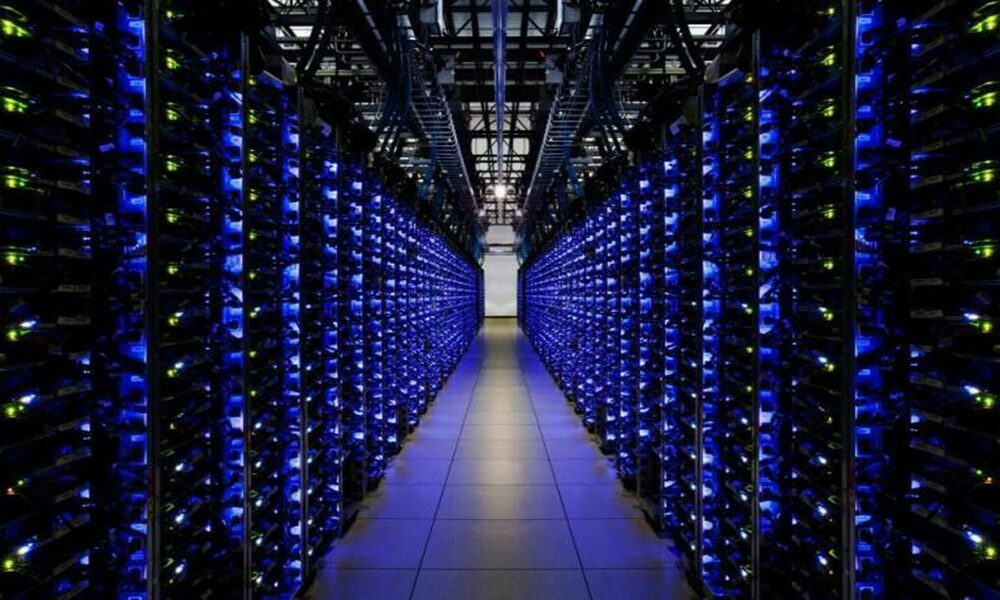
Four years after its last face-to-face edition, Google Cloud Next 23 has raised the curtain again in San Francisco to present, in front of the thousands of attendees at the event, its latest innovations and improvements. He Google Cloud CEO Thomas Kurianhas been commissioned to present them, highlighting that generative AI, and improvements in cloud technology, are driving a new era in the cloud.
According to Kurian, the company’s focus is now on making AI tools available to any employee in the organization. From IT team members to operations and security. He has also talked about the agreements they have with companies, as well as the companies that choose their cloud to operate on a daily basis. In addition, he has underlined that more than half of the already funded AI startups are Google Cloud customers. In the case of generative AI unicorns, the percentage exceeds 70%.
As for its novelties, they have focused on improvements in infrastructure, in the Vertex AI platform and in analytics and security. They have also announced the integration of Duet AI into Workspace and Google Cloud.
Google Cloud Next 23: infrastructure news and customer support tools
Among the most outstanding novelties that Thomas Kurian has shown in Google Cloud Next 23 is Cloud TPUv5, the most cost-efficient, versatile, and scalable Google Cloud AI accelerator to date for the company. With it, customers can use a single TPU cloud platform to run large-scale AI training and inference.
In addition, Kurian has also presented the A3 virtual machines with Nvidia H100 GPU, which will be available from next month. They will allow companies to train the performance of AI models with a performance three times better than the previous generation, the A2. Also new, GKE Enterprise enables the multi-cluster horizontal scaling required for the most critical and demanding machine learning and AI workloads.
Another novelty is the Cross-Cloud Network global network platform, whose mission is to help customers connect and secure applications in different clouds. It is an open platform, optimized for workloads, that offers security powered by machine learning to offer zero trust policies.
For his part, Google Distributed Cloud (GDC), is designed to meet the specific needs of companies that want to run workloads at the edge or in their data centers. The Google Distributed Cloud portfolio will bring AI to the edge with integrations with Vertex AI.
Vertex AI platform enhancements
Google Cloud’s Vertex AI Artificial Intelligence platform also has news. With it, the company’s clients can develop, deploy and scale machine learning models, in addition to having access to more than a hundred foundational models, both open source and specific to a specific sector.
Among them are Sec-PaLM 2 for cybersecurity, and Med-PaLM 2 for health and science related to living beings. But also, from now on you will have a package of tools for the development of search and chat applications using your data. In addition, they will allow you to do it in just a few minutes, starting with very little code. And with built-in enterprise-grade security and management.
Another novelty is the update of PaLM 2 up to 32K context windows. Thus, companies can process longer documents. Even books. On the other hand, the platform will incorporate adjustment tools for PaLM 2 and Codey, as well as a new method for Image, Style Tuning, with which companies will be able to generate images in line with the guidelines of a specific brand. To achieve this, you only need a small number of reference images.
Vertex AI will also feature new models: Llama 2 and Code Llama from Meta; and Falcon LLM, from the Institute for Innovative Technology. Google Cloud has also announced the soon availability of Anthropic’s Claude 2. On the other hand, developers will be able to access, develop and manage extensions with Vertex AI, with the aim of obtaining information in real time, integrating company data and taking actions on behalf of the user.
In Vertex AI there will also be digital watermarking, thanks to a technology that integrates the watermark directly into the pixels of the image, making it invisible to the human eye and difficult to falsify. Finally, with the Colab Enteprise managed service, Vertex AI will have the ease of use of Colab notebooks with enterprise-grade security and compliance capabilities, helping data scientists accelerate data workflows. AI.
Duet AI on Workspace and Google Cloud
Google Cloud has confirmed that Duet AI, introduced in May, will have more features in Google Workspace. In addition, the company has expanded the capabilities that it had in the Duet AI test on Google Cloud, although its general availability will not arrive for a few weeks. Of course, they will be ready before the end of the year.
Until now, Duet AI in Workspace allowed you to help write and compose content in Gmail and Google Docs, generate original images in Google Slides, and extract insights from data in Google Sheets. It also had some improvements for Google Meet, but from now on, Duet AI will take notes during Meet video calls, send meeting summaries, and automatically translate captions in 18 languages. And in Google Chat, users can chat directly with Duet AI to ask questions about their content, get a summary of documents shared in a space, or catch up on conversations already held.
Additionally, Duet AI can now provide AI support across a variety of Google Cloud products and services. So you can act as a code wizard to help developers write code faster, an advisor to help operators address application or infrastructure issues, and a data analyst to deliver better (and faster) insights. You can also act as a security advisor and recommend best practices to prevent cyberattacks.
More powerful analytics and greater security
Google Cloud is also bringing new features to Google’s cloud data and AI, enabling new insights and improving the productivity of data teams. Among them, BigQuery Studioa single interface for data engineering, analytics, and predictive analytics.
Also AlloyDB AI, which is part of AlloyDB, and which provides an integrated set of features for GenAI app development. Other than that, the number of Google Cloud cloud data partners goes up. Confluent, DataRobot, Dataiku, Datastax, Elastic, MongoDB, MNeo4j, Redis, SingleStore, and Starburst have released new features to help customers accelerate and improve AI development with data.
Among the security news for Google Cloud is Mandiant Hunt for Chronicle, a service that integrates the latest data on attacker behavior, provided by Mandiant experts, with Chronicle Security Operation’s ability to quickly analyze and search security data. Thus, customers can get an improved level of support without having to add staff, or train them and adopt new tools.
With new agentless vulnerability scanning, Google Cloud gains management capabilities in the Security Center to detect operating system, software, or network vulnerabilities in Compute Engine virtual machines. But it also improves network security, since Google Cloud incorporates advanced protection against threats Cloud Firewall Plus and next-generation firewall features to your distributed firewall service. Finally, the Network Service Integration Manager allows network administrators to easily integrate trusted third-party virtual devices for traffic inspection.



